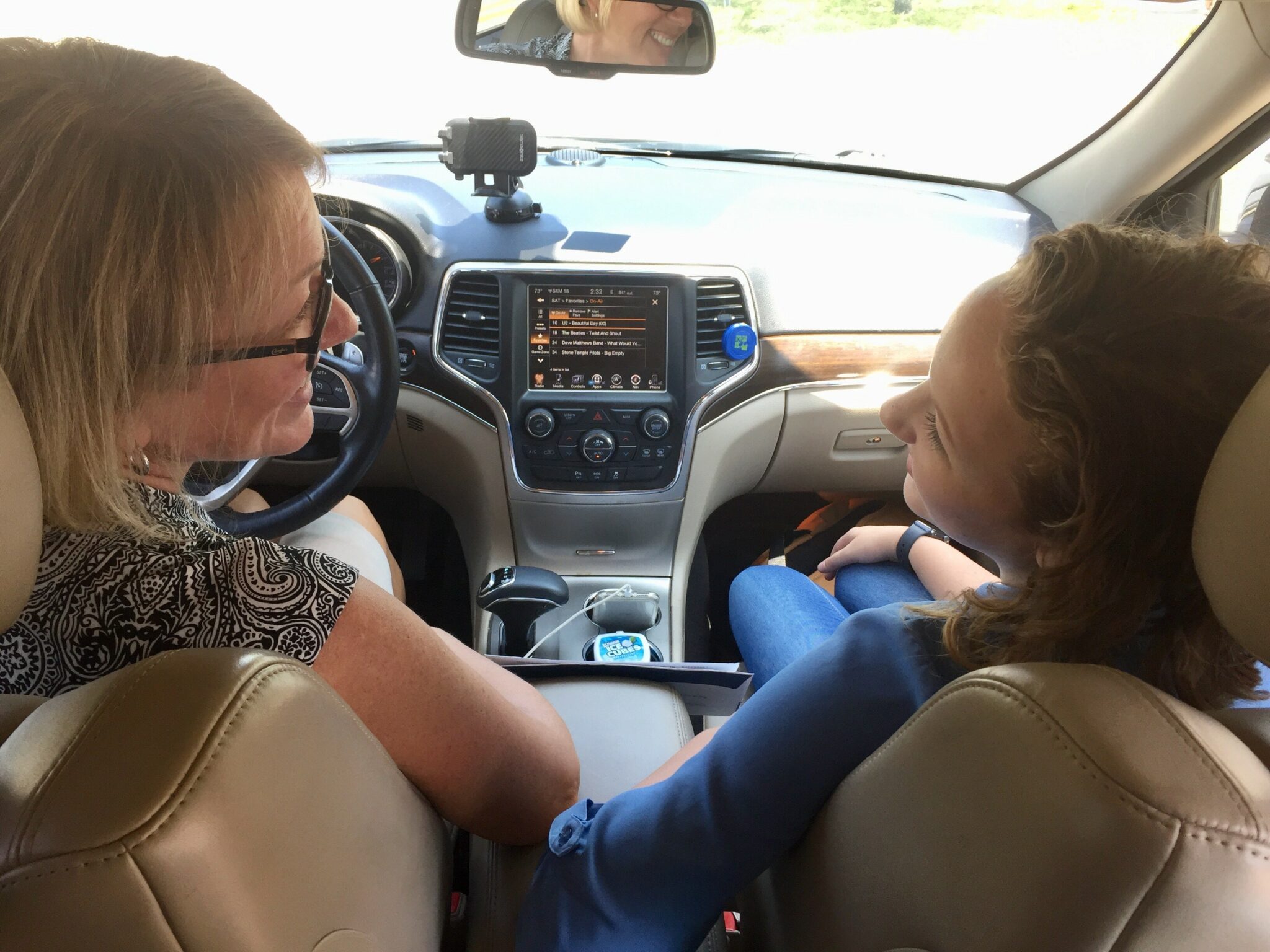As a teacher, I understand the power of questioning. How you frame them, open vs. close-ended, how to phrase so that I get a little response, when to push for more, and the power of wait time. (Intentional silence after asking a question so that every kid has time to process and generate an idea.)
As a parent, questions and how we pose them have just as much power.
When you pick your child up from school you may ask the question,
“Did you have a good day?”
There are a variety of answers that we have probably all heard, “Yes”, “No,” “Ok”, “I don’t know.” “OK, I guess”, or maybe you just get the shoulder shrug. Those of you who want more than a one word answer or a shrug will ask an open ended question such as,
“What did you do today?”
Some of us are lucky enough to get a play by play of what your child did at school, but many more will still get the answer of, “I don’t know” or the shoulder shrug. Those of you who are really persistent will switch it up and ask a variety of questions until you get an answer, “What was your favorite part of the day?” or “What were you grateful for today?”
However, if you want to dig deeper ask,
“What good questions did you ask today?”
Chances are that you may be met with a confused looked initially and a period of silence, but think about what we are teaching our children when we ask this question. We are encouraging them to ask questions and challenging them to ask good questions. To remain engaged. They begin to learn that what they are curious about matters and that it is OK to explore their thoughts and ideas.
In general children are not encouraged to ask questions, especially in school, for a variety of reason. There is not enough time, their questions do not fit neatly into the lesson planned for the day, etc. For a lot of people questions trigger uncertainty, fear of not knowing the answers, anxiety of the unexpected, fear of getting shut down. We have all experienced these reactions at one time or another. The one thing that we can do to help our children and ourselves to overcome these feelings is to give our children and ourselves permission to practice this skill daily so that it becomes second nature.
At Indi-ED each child is given an opportunity to pick a new topic each unit that they are interested in and ask as many questions as they want every two and a half months. Those are big questions. Not only do they attempt to answer these questions through their research, but they reach out to experts in the real world to ask their questions.
In addition, every morning we have a meeting where everyone has an opportunity to share, give accolades to one another, and to ask each other questions. At the end of each day we reflect in journals and encourage everyone to write down additional questions about what they learned that day. Not only do we encourage questions during regular class discussions, but we organize Socratic Discussions to encourage questions and to provide the children an opportunity to not only ask questions but to answer questions.
In the end it is our goal as teachers not only to encourage the children to ask good questions, but to learn how to find the answers to their questions through valid resources.
The more questions we ask the more pathways our brain create, the more we learn, the more new ideas we will be exposed to, and most importantly the more likely we will choose to think critically rather than just consume the information that we are being fed.
It may not be as easy if the environments you’re in don’t support a similar mentality, but if you want your child to remain curious, creative, and critical thinkers, it may be worth the extra work to dig deeper.


